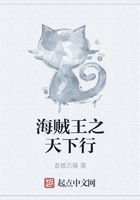"Never mind, my dear. It's God's will. You are very slow, lad," he added, addressing his companion; "look alive!
"Your yoke's nowhere," said the young man; "it is not to be seen." "You are a regular Vavila."The old man picked up an ember, blew on it -- only his eyes and nose were lighted up -- then, when they had found the yoke, he went with the light to Lipa and looked at her, and his look expressed compassion and tenderness.
"You are a mother," he said; "every mother grieves for her child."And he sighed and shook his head as he said it. Vavila threw something on the fire, stamped on it -- and at once it was very dark; the vision vanished, and as before there were only the fields, the sky with the stars, and the noise of the birds hindering each other from sleep. And the landrail called, it seemed, in the very place where the fire had been.
But a minute passed, and again she could see the two carts and the old man and lanky Vavila. The carts creaked as they went out on the road.
"Are you holy men?" Lipa asked the old man. "No. We are from Firsanovo.""You looked at me just now and my heart was softened. And the young man is so gentle. I thought you must be holy men.""Are you going far?" "To Ukleevo."
"Get in, we will give you a lift as far as Kuzmenki, then you go straight on and we turn off to the left."Vavila got into the cart with the barrel and the old man and Lipa got into the other. They moved at a walking pace, Vavila in front.
"My baby was in torment all day," said Lipa. "He looked at me with his little eyes and said nothing; he wanted to speak and could not. Holy Father, Queen of Heaven! In my grief I kept falling down on the floor. I stood up and fell down by the bedside. And tell me, grandfather, why a little thing should be tormented before his death? When a grown-up person, a man or woman, are in torment their sins are forgiven, but why a little thing, when he has no sins? Why?""Who can tell?" answered the old man. They drove on for half an hour in silence.
"We can't know everything, how and wherefore," said the old man. "It is ordained for the bird to have not four wings but two because it is able to fly with two; and so it is ordained for man not to know everything but only a half or a quarter. As much as he needs to know so as to live, so much he knows.""It is better for me to go on foot, grandfather. Now my heart is all of a tremble.""Never mind, sit still."
The old man yawned and made the sign of the cross over his mouth. "Never mind," he repeated. "Yours is not the worst of sorrows. Life islong, there will be good and bad to come, there will be everything. Great is mother Russia," he said, and looked round on each side of him. "I have been all over Russia, and I have seen everything in her, and you may believe my words, my dear. There will be good and there will be bad. I went as a delegate from my village to Siberia, and I have been to the Amur River and the Altai Mountains and I settled in Siberia; I worked the land there, then I was homesick for mother Russia and I came back to my native village. We came back to Russia on foot; and I remember we went on a steamer, and I was thin as thin, all in rags, barefoot, freezing with cold, and gnawing a crust, and a gentleman who was on the steamer -- the kingdom of heaven be his if he is dead -- looked at me pitifully, and the tears came into his eyes. 'Ah,' he said, 'your bread is black, your days are black. . . .' And when I got home, as the saying is, there was neither sticknor stall; I had a wife, but I left her behind in Siberia, she was buried there. So I am living as a day labourer. And yet I tell you: since then I have had good as well as bad. Here I do not want to die, my dear, I would be glad to live another twenty years; so there has been more of the good. And great is our mother Russia!" and again he gazed to each side and looked round.
"Grandfather," Lipa asked, "when anyone dies, how many days does his soul walk the earth?""Who can tell! Ask Vavila here, he has been to school. Now they teach them everything. Vavila!" the old man called to him.
"Yes!"
"Vavila, when anyone dies how long does his soul walk the earth? Vavila stopped the horse and only then answered:
"Nine days. My uncle Kirilla died and his soul lived in our hut thirteen days after.""How do you know?"
"For thirteen days there was a knocking in the stove.""Well, that's all right. Go on," said the old man, and it could be seen that he did not believe a word of all that.
Near Kuzmenki the cart turned into the high road while Lipa went straight on. It was by now getting light. As she went down into the ravine the Ukleevo huts and the church were hidden in fog. It was cold, and it seemed to her that the same cuckoo was calling still.
When Lipa reached home the cattle had not yet been driven out; everyone was asleep. She sat down on the steps and waited. The old man was the first to come out; he understood all that had happened from the first glance at her, and for a long time he could not articulate a word, but only moved his lips without a sound.
"Ech, Lipa," he said, "you did not take care of my grandchild. . . ." Varvara was awakened. She clasped her hands and broke into sobs,and immediately began laying out the baby.
"And he was a pretty child . . ." she said. "Oh, dear, dear. . . . You only had the one child, and you did not take care enough of him, you silly girl. . . ."There was a requiem service in the morning and the evening. Thefuneral took place the next day, and after it the guests and the priests ate a great deal, and with such greed that one might have thought that they had not tasted food for a long time. Lipa waited at table, and the priest, lifting his fork on which there was a salted mushroom, said to her:
"Don't grieve for the babe. For of such is the kingdom of heaven."And only when they had all separated Lipa realized fully that there was no Nikifor and never would be, she realized it and broke into sobs. And she did not know what room to go into to sob, for she felt that now that her child was dead there was no place for her in the house, that she had no reason to be here, that she was in the way; and the others felt it, too.















